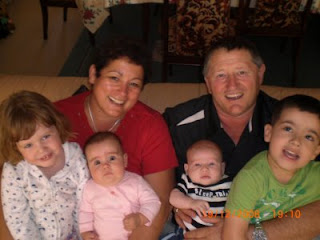THE HON NICOLA ROXON MP Minister for Health and Ageing:
Maternity Services Report:
Recommendations in a nutshell:
Improving choice for Australian women by supporting an expanded role for midwives
Consideration of the expansion of access to Medicare and the PBS for midwives – but only if accompanied by stringent professional requirements for midwives
Consideration of support for professional indemnity insurance for midwives
The development of new national cross-professional guidelines to support collaborative multidisciplinary care in line with best practice
Consideration of the establishment of a single integrated pregnancy-related telephone support line
Improved data collection and analysis, and further research
Providing increased support for the maternity workforce, particularly in rural Australia
The release of this report has generated many different responses: here are a few:
Rural doctors welcome maternity review
The Rural Doctors Association of Australia (RDAA) has welcomed the Australian Department of Health and Ageing’s Maternity Services Review Report. The association has said it provided a strong way forward for improving access to maternity services in the bush.
For a long time now maternity services in rural areas have been under increasing pressure and at least half of rural maternity units have been closed down over the past decade.
It is a well known fact that pregnant rural women are increasingly having to travel great distances to give birth as there is limited maternity services available for them.
The Maternity Services Review Report provided an opportunity for all stakeholders including consumers, doctors and midwives, and government to focus urgently on getting much-needed maternity services back into the bush.
The next question that has raised debate is that of indemnity insurance for independent and private midwives. I think that it is fantastic that the Commonwealth government is considering indemnity insurance for midwives. National Registration will be introduced in 2010 and all midwives will be required to have indemnity insurance to be registered. This will prove difficult if we do not have government assistance and we will lose many midwives.
Women are intitled to choose where, who, how, they will be assisted with their birth.
6 Minutes.com.au, reported this story:
GP obstetricians will be angry
if they have to foot their own medical indemnity insurance while midwives received government help, a leading obstetrician says.
The federal government’s new Maternity Services Review says subsidies for indemnity insurance would help private midwives who risk financial ruin by being sued.
The Age.com.au reports:
Furore over midwife report as doctors go on the attack
THE Australian Medical Association has accused Federal Health Minister Nicola Roxon of being "gung-ho" about the role of midwives and misrepresenting the findings of the Government's maternity services review.
It will be interesting to watch what happens and what the expectation will be relating to " expanded role of the midwife" "advanced level of professional education and experience" that will be expected of midwives.
In 2007 some Midwives in WA completed the 'expanded role of the midwife" course in preparation for this role.
Will UK & NZ trained midwives have to complete the expanded role of the Midwife when they come to work in Australia? they already work to this level, autonomously and independently.
The Age also comments
this could potentially allow midwives to prescribe medicines, open private group services and contract their services to hospitals. Midwives would also be given access to the Medicare system, although the report did not recommend Commonwealth funding for home births."
It is about time this happened - Women already pay for private services for independent midwives, why should they be disadvantaged for the informed choice they make - why not allow them to claim from the Medicare system.
Specialist doctors argue that Australia's strong safety record for mothers and babies shows that the current system is working, while advocates of home births have accused doctors of being responsible for soaring surgical delivery rates.
It is interesting to use the strong safety record for mothers and babies, however this also works in favour of midwifery, also, I feel it does not indicate the current system is working, if that was the case we would not have women choosing unattended births or freebirth occurring. Why are they happening, because women are not being listened to by obstetricians they feel they have no choice.
It is sad but no surprise that Dr Capolingua uses that "F word" "Fear" to reinforce the medical model in childbirth instead of working together with midwives in a collaborative way.
It was also disappointing to see very little or no support of homebirth via funding.
Another good aspect of this report was to see increased funding and maternity services for Indigenous women.
The report also discusses workforce issues, such as; aging GP's, Obstetricians, and Midwives, the average age of midwives being 45.6 years.
I am delighted to see that finally a Health Minister is listening to what WOMEN want, and that is CHOICE and to recognise that childbirth has become so medicalsied with high intervention, cesarean sections and the poor breastfeeding rates.


